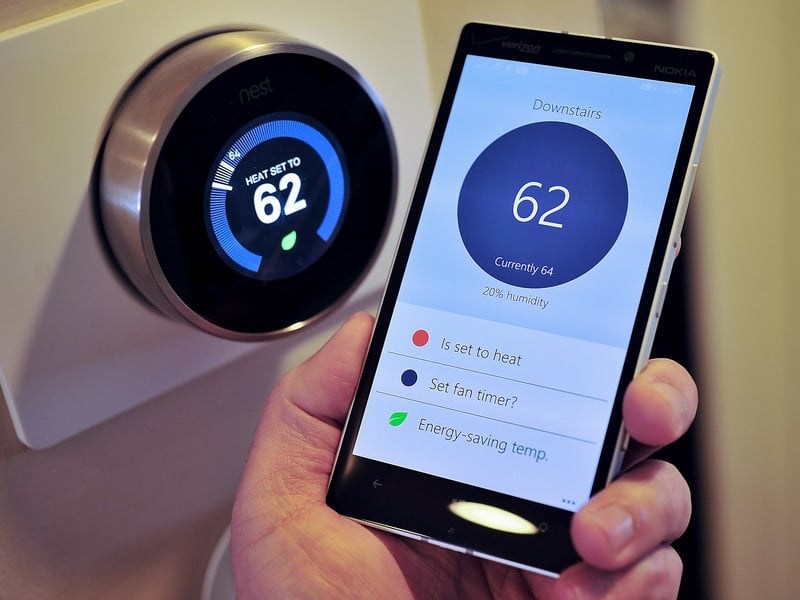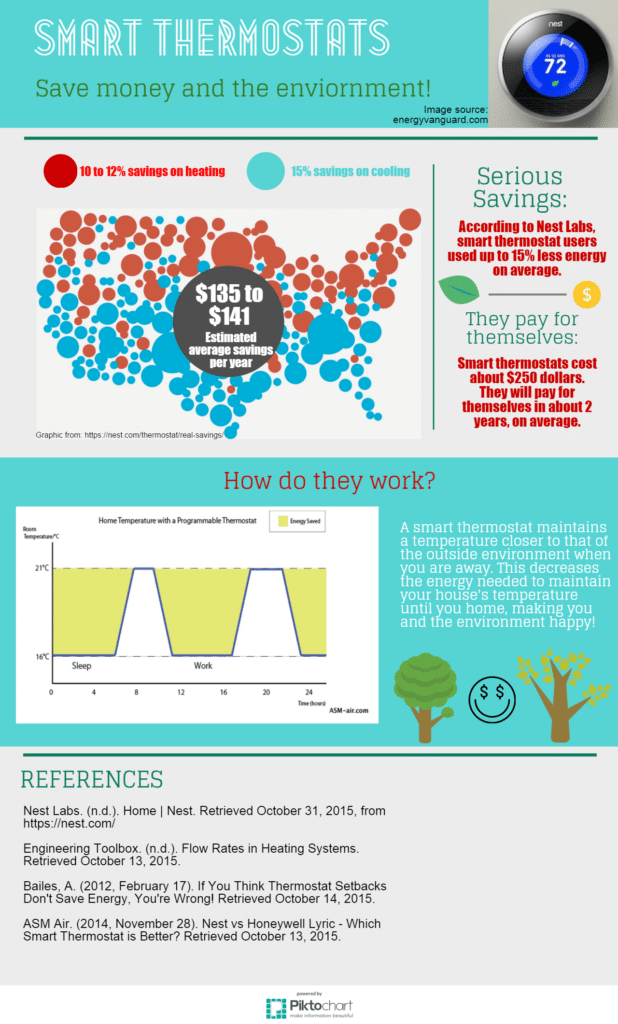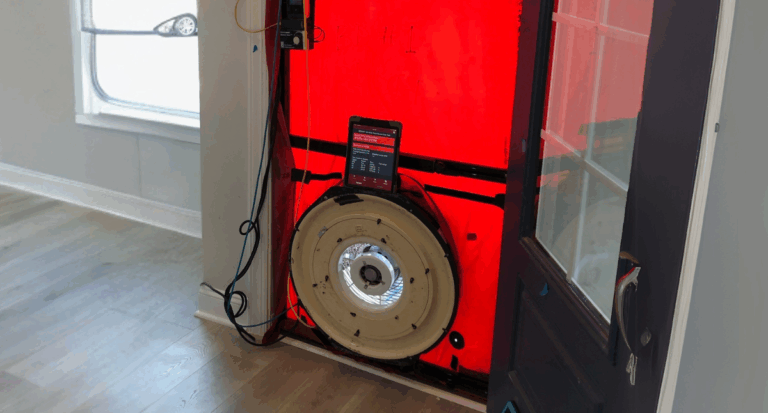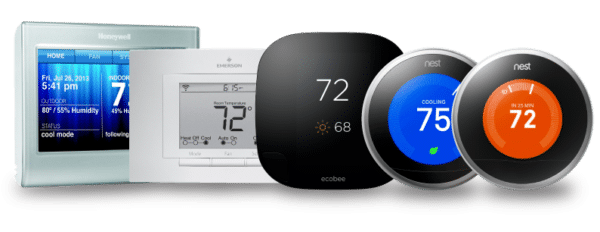
Heating and Cooling Consume a lot of Energy
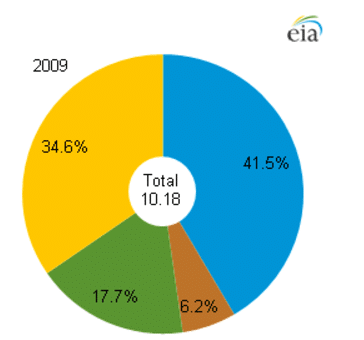

Programmable Thermostats
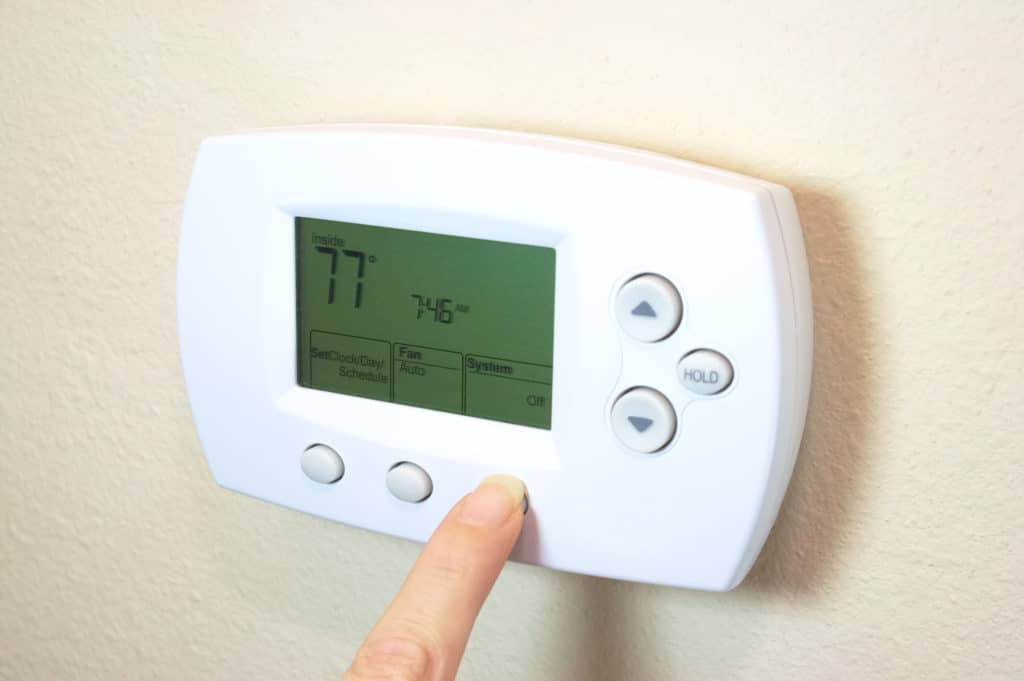
With a programmable thermostat, homeowners are not boxed in to manually adjust the temperature. Instead, they’re able to program the temperature for specific times throughout the day. According to the U.S. Department of Energy, homeowners can save as much as 10% on their heating and cooling bills. They can do this by resetting their thermostat when sleeping or away from home. A programmable thermostat is simple: simply set it and forget it.
Smart Thermostats
The infographic below from Ohio State University uses data provided by Nest to show consumers the savings that could be had with a smart thermostat. While the data comes from Nest, home owners interested in a smart thermostat can also enjoy recognize some of the benefits associated with a smart thermostat in general.

